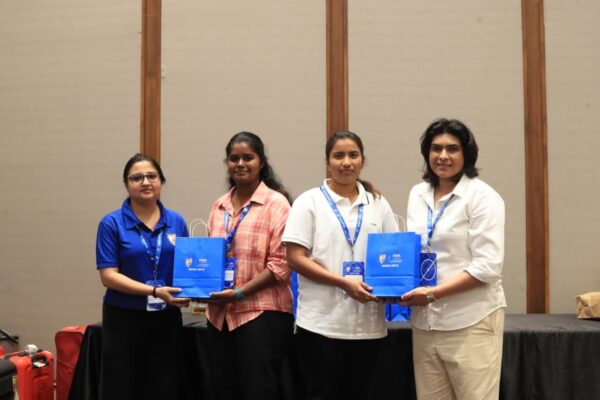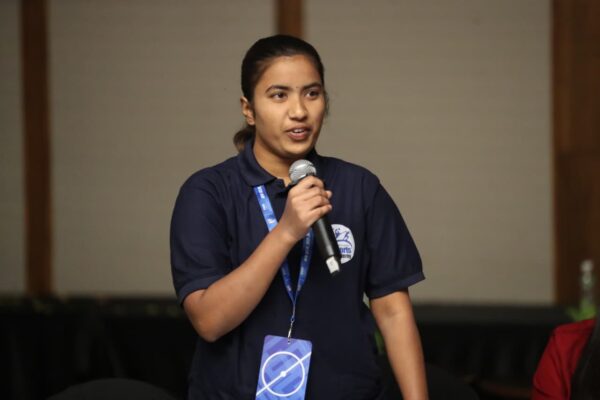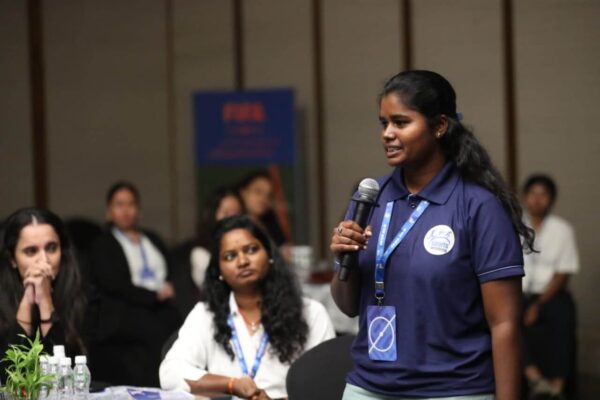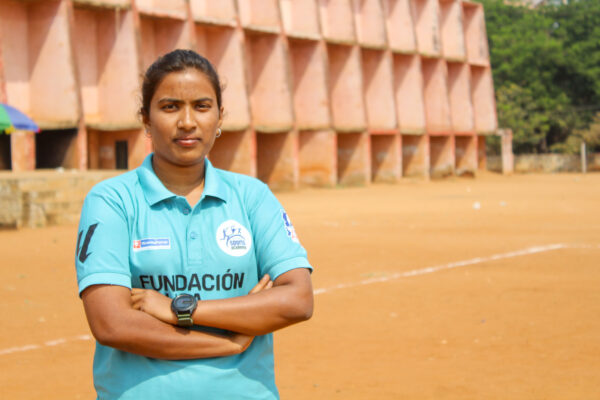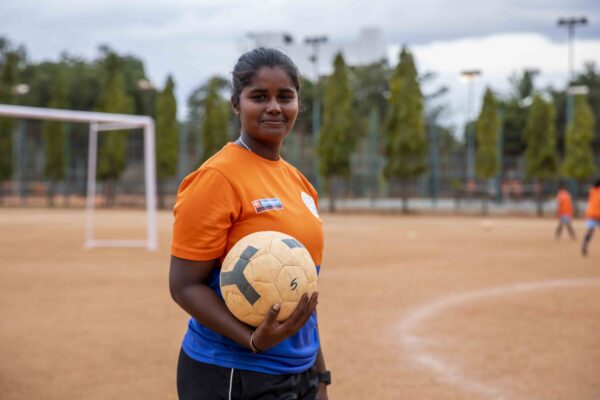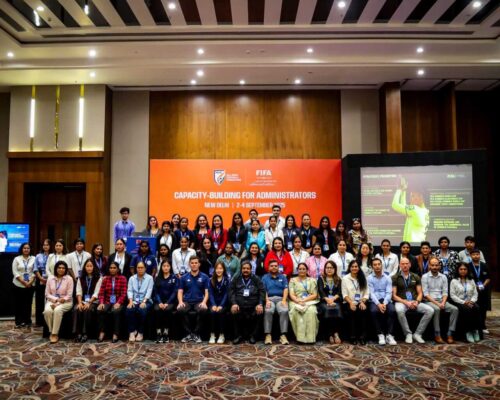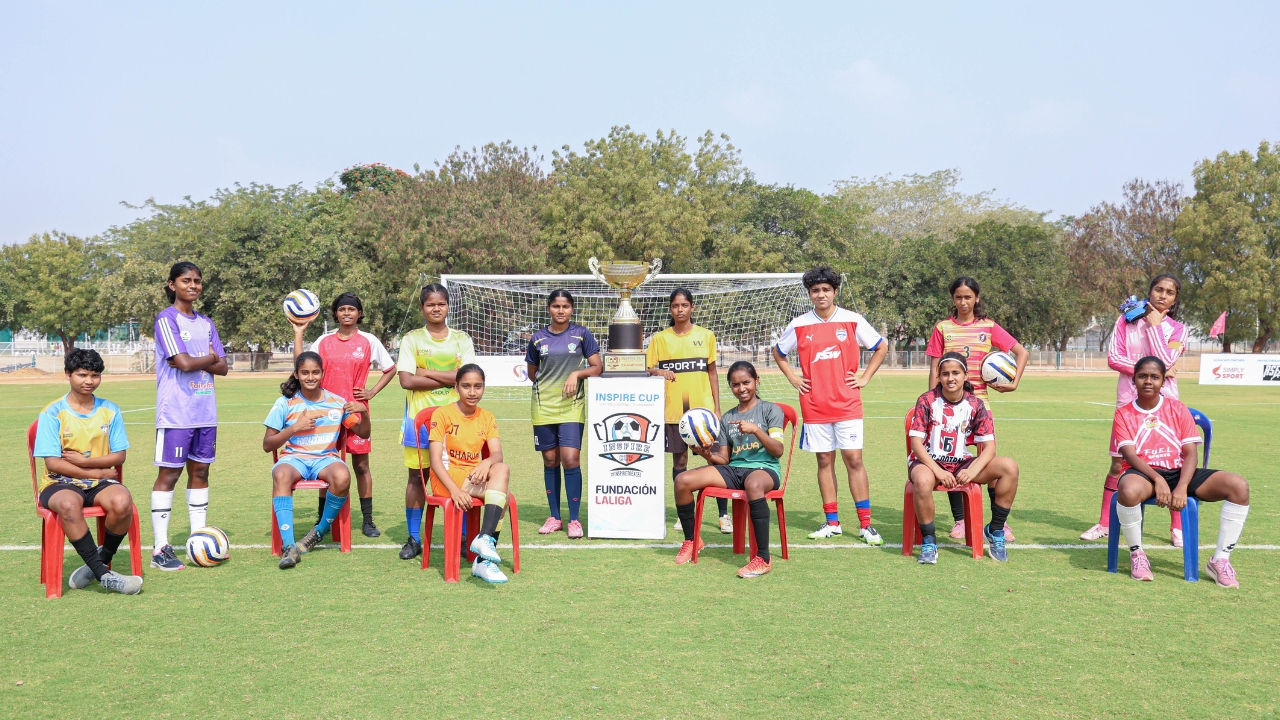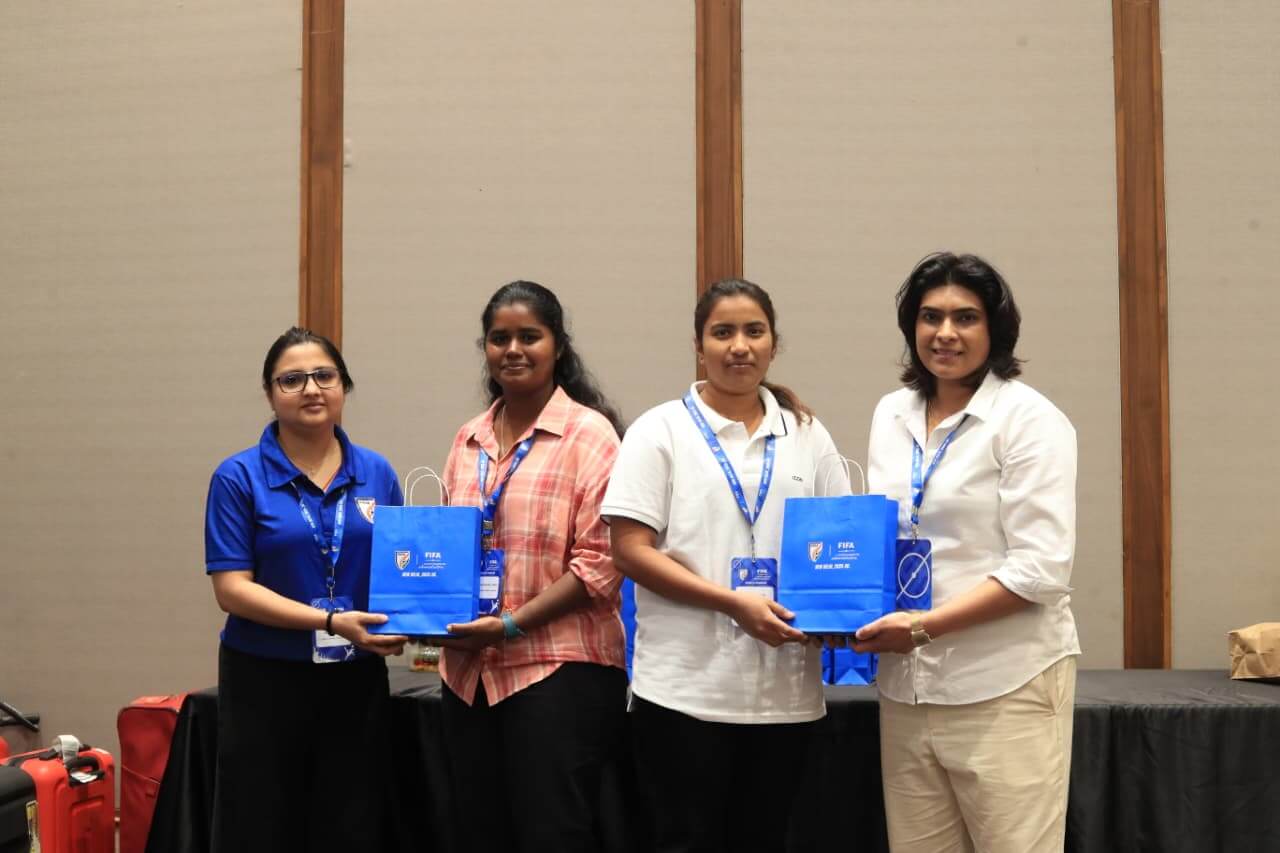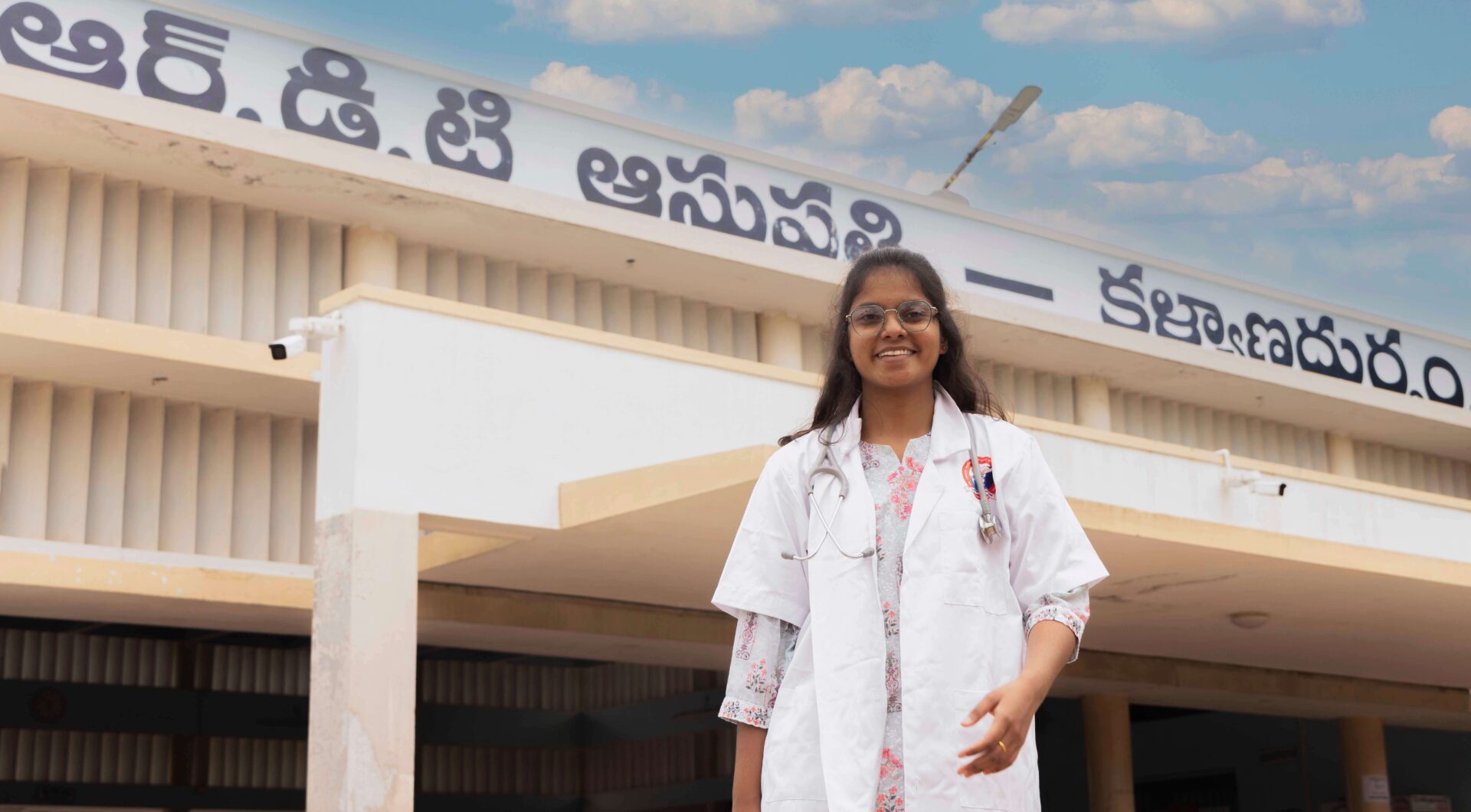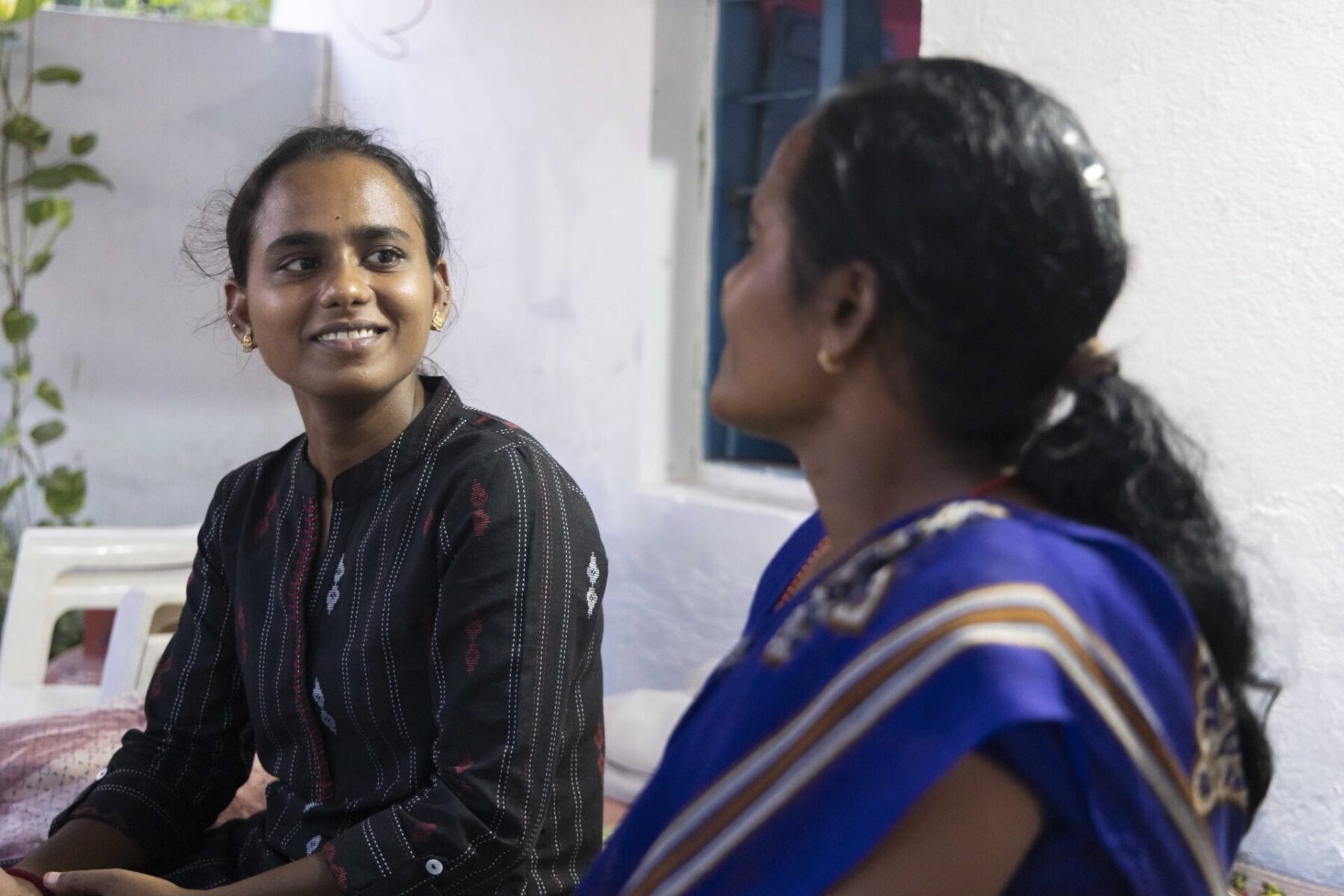The future of football is not just defined by what happens within the sidelines but beyond them. For Anjali Devi, head coach of the Anantapur Sports Academy (ASA) residential girls’ team, and D. Vijayavani, grassroots coach from Hindupur, stepping into the FIFA Capacity Building Workshop meant stepping into a larger role, one that asked them to think beyond the sidelines. Representing the Andhra Pradesh Football Association (APFA), the two young leaders joined women from across the country to strengthen their skills not just as coaches, but as administrators ready to shape the next chapter of women’s football in India.
Both Anjali and Vijayavani come from a rural background, where the Rural Development Trust (RDT) engages youth and children through ASA, its sport-for-development initiative. By providing access to sports equipment and safe playing spaces, RDT-ASA ensures every child enjoys their fundamental ‘right to play’. 16,425 children and 228 youth were reached as an impact of these programmes in 2024-25 alone, from Anantapur and Sri Sathya Sai districts. The journeys of Anjali, Vijayavani, and M. Anusha (who represented the India Senior Women’s team) reflect these impacts.
The workshop, delivered by FIFA experts Simon Toselli, Natcha Tarateerasam, and Pema Tshering, gave participants practical knowledge on a diverse range of subjects, including leadership and communication, good governance, marketing, PR and media management, safeguarding, Club licensing and Academy Accreditation, and Grassroots Football Development. This opportunity, provided by AIFF and the support given by APFA to our emerging leaders, was a step toward ensuring more women step into leadership roles in football.
After returning from the workshop, Anjali and Vijayavani shared their experiences and their vision for the future of women’s football in India.
How was the workshop, and what were your learnings or takeaways?
Vijayavani: The workshop was well organised and improved my knowledge on public relations, marketing, and safeguarding. But, governance stood out as understanding how systems work behind the scenes is more important.
Anjali: For me, too, it was a great experience. I learnt a lot about administration, including club licensing, grassroots, and most importantly, safeguarding. These are essential for building the future of women’s football.
Since there were many personalities actively involved in the development of women’s football in India, how did it feel to share the stage with them?
Vijayavani: I felt blessed to share the stage with former players and AIFF officials. The way they motivate and encourage young players and officials is very inspiring.
Anjali: It was a great opportunity. I met Bembem Devi, Bala Devi, Chitra Gangadharan ( Former India Footballer & Coach), Crispin Chettri (Head Coach of Senior India Women’s Team), Joakim Alexandersson (Head Coach of India U-20 Women’s Team), and administrators from other Indian Women’s League clubs. We had many conversations, and they even shared their personal experiences with us, which inspired us to go further.
Did the workshop change your perspective on football administration?
Anjali: Yes. Coaching and administration are two different things, but as a coach, it is essential to understand the administrative process. I learnt about academy accreditation, the club licensing, the Centralised Registration System (CRS), and the Competition Management System (CMS). The detailed explanation about the No Objection Certificate (NOC) process was especially useful. It showed me that administration is not just paperwork; it directly supports athletes.
Vijayavani: I agree. Earlier, I thought administration was only about organising matches. Now I understand it also includes governance, player welfare, and sponsorship.
How do you plan to apply these learnings in the future, especially at the grassroots level?
Vijayavani: I want to focus on increasing grassroots participation and community engagement by organising regular Sunday matches and fun games to attract children. I also plan to introduce CRS and CMS and add life skills programmes to help young athletes grow beyond the game.
Anjali: Equal opportunities are key. We need to ensure that both girls and boys from younger age groups, starting from Under-8, get the chance to play. ASA has already shown how this works with the Mixed-Gender Festivals (MGF) and Rural Football League (RFL). With APFA’s support, we can expand these initiatives. Safe environments and youth volunteers are also important, because parents will trust the system only when they see their children are safe and happy.
How can organisations like ASA and associations like APFA further improve women’s football?
Anjali: Girls have many opportunities in football, but we must start at the grassroots level. Equal participation from the Under-8 age group onward will strengthen the base. Competitions like the RFL, Inspire Cup, and exposure matches are very useful in this process.
Vijayavani: Yes, safe spaces and more competitions will give girls the confidence to continue and take advantage of those opportunities.
How do initiatives like this workshop contribute to the improvement of women’s football in India?
Vijayavani: Workshops bring coaches, officials, and managers together. Sharing our thoughts, experiences, and challenges under one roof helps us learn from each other and find solutions.
Anjali: For me, it was inspiring to see so many women involved in football administration. I realised there is a growing network of women working behind the scenes. That knowledge motivates us and shows us clear pathways for growth.
Anjali, you also worked with the India U-20 Women’s team. What challenges did you face, and did this workshop help you in any way?
Anjali: Administration was new to me when I joined the Indian camp. It was challenging at first, but also a learning experience. The workshop boosted my confidence and equipped me with the tools I can apply in the future.
What do you think are the biggest challenges for women in football administration in India today?
Vijayavani: Lack of awareness about administration.
Anjali: I agree. Also, there are very few women in administration, especially in women’s football. Women administrators understand women’s issues better, so increasing their numbers is important.
What message would you like to share with parents, teachers, and communities about their role in encouraging girls to participate in sports?
Anjali: If girls or young children step out to play, encourage them. Sports build confidence, make them strong physically and mentally, and prepare them for challenges in the outside world. There are many pathways in sports, including coaching, refereeing, administration, and even becoming an international athlete. Many parents ask what opportunities exist in sports, but they don’t always know the range available. It is our responsibility to spread this awareness and bring girls forward.
Vijayavani: I believe sports from a young age give children essential life skills like teamwork, confidence, and leadership. Parents should focus on their children’s development instead of worrying about society. When parents and coaches believe in children, they gain the confidence to seize opportunities.
For Anjali and Vijayavani, the FIFA Capacity Building Workshop was more than a training programme. It was a reminder that the progress of women’s football in India depends on building from the ground up, with safe spaces, strong systems, and equal opportunities. Their reflections show that when women step into leadership, they not only coach players, they coach change itself. With the steady support of ASA, APFA, and AIFF, the future of women’s football is no longer just a vision; it is already unfolding
Text: Kailas Khanna K.R.
Images: AIFF, Kailas Khanna K.R., Riya John Richard

